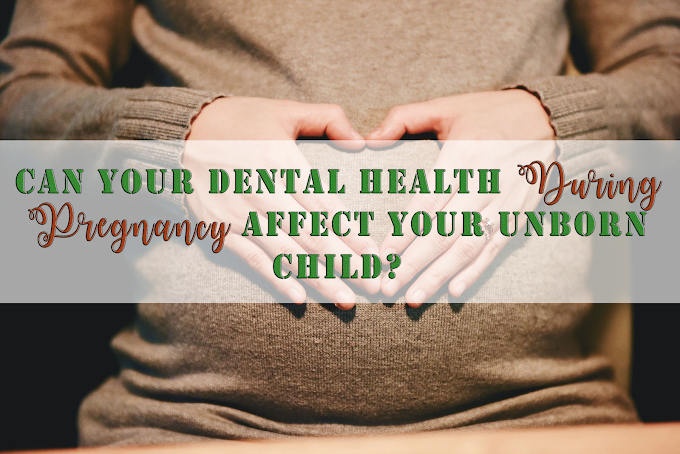There is an old wive's tale that says you lose a tooth for every baby you have. Well, that's a bit of an exaggeration. Pregnancy does not automatically cause damage to your teeth, per se. But, hormonal changes during pregnancy can increase your risk of developing gum disease - and gum disease can affect your developing baby's health.
That's why you should also take extra care of your dental hygiene while pregnant. Regular visits to the dental clinic can help ensure your overall dental health.
How Does Dental Disease Affect a Developing Baby?
Several studies have shown that there is a link between premature birth with low birth weight and gum disease in pregnant women. Premature babies have a higher risk of developing health conditions, such as cerebral palsy and problems with hearing and eyesight.
It is estimated that 18 out of 100 prematurely births are due to a chronic infection of the gums called periodontal disease. Expectant mothers can reduce the risk of premature birth by simply taking care of their dental health.
Possible Causes of Dental Problems During Pregnancy
Some of the most common causes of dental health conditions during pregnancy are the following.
Gum Problems
Some of the hormonal changes in women during pregnancy make them more susceptible to gum problems. Some of these problems include gingivitis, periodontal disease, and pyogenic granuloma or pregnancy epulis.
Gum problems during pregnancy are not simply caused by increased plaque. Rather, it's a worse response to plaque resulting from increased hormone levels. Most dental problems caused by pregnancy hormones usually resolve by themselves after birth. However, a small number of women may need further treatments for the problem to resolve.
Pregnancy Gingivitis
Pregnancy gingivitis is an inflammation of the gums. It can cause tenderness and swelling. You may experience gum bleeding when you floss or brush. If left untreated, it can lead to more serious gum disease conditions.
Vomiting
Morning sickness or vomiting is a common occurrence during pregnancy. This is because pregnancy hormones can soften the muscle that keeps food inside the stomach. When food or drink is regurgitated, the strong acids that accompany the regurgitated food can coat the enamel of your teeth. Thus, increasing the risk of tooth decay.
Your first instinct might be to brush your teeth right after vomiting. But this might cause more harm than good. The vigorous brushing motion can further damage the enamel of your teeth while covered in stomach acids. Instead of brushing, rinse your mouth with plain water followed by fluoridated water.
Alternatively, you can put a small amount on your finger and gently dab it over your teeth. Rinse thoroughly with water. You may brush your teeth one hour after vomiting.
Sugary Food Cravings
Food cravings are not uncommon with pregnant women. However, regular craving for sweet treats can increase your risk of tooth decay. You can try low-sugar snacks to help tide your cravings.
But if only a sweet treat will satisfy your cravings, you can try snacking on fruits instead. Just make sure to rinse your mouth and brush your teeth after eating anything sugary.
Retching While Brushing Teeth
For some women, brushing their teeth—particularly the molars—can be torture. That's because it provokes retching for them. However, not brushing is not the solution to this problem, as it will cause tooth decay. If you are sensitive to retching during pregnancy, here some of the things you can do.
- Use a toothbrush with a relatively small head like the ones made for toddlers.
- Don't rush. Slow down the brushing motion.
- Concentrate on your breathing. Close your eyes if you must.
- Listen to music if you still need other distractions.
- If the taste of your toothpaste is making you gag, switch to another brand. Alternatively, you can gargle with fluoridated water. But don't forget to return to regular brushing as soon as you can.
Dental Care During Pregnancy
Here are some of the things you can do and need to know for your dental health during pregnancy.
- Let your dentist know that you are pregnant. While it's generally safe to perform routine dental care any time during pregnancy, all elective dental procedures should be postponed. At least, until after your delivery. Telling your dentist that you're pregnant will help them use extra precautions while treating you. Additionally, don't forget to check with your obstetrician for any special instructions for you.
- Your dentist also needs to know all the drugs—and dosages—you are taking. This includes prenatal vitamins and medications prescribed by your OB, as well as specific medical advice given by your doctor. Your dentist may need to make adjustments to your dental treatment plan because of this information.
- Dental x-rays are relatively safe during pregnancy, as long as it is done with utmost care and caution. To safeguard you and your baby, your dentist will need to cover your thyroid and abdomen during the whole process.
- Make sure to increase your calcium intake while pregnant. Having sufficient calcium will help ensure the protection of your bone mass while meeting the nutritional needs of your baby. Good sources of calcium include cheese, milk, calcium-fortified soy milk, and unsweetened yogurt.
- Aside from calcium, you also need lots and lots of vitamin D. Good sources include fortified margarine, cheese, eggs, and fatty fish, such as salmon.
- Make sure to follow good dental hygiene practices at all times to help prevent oral health problems.




0 Comments